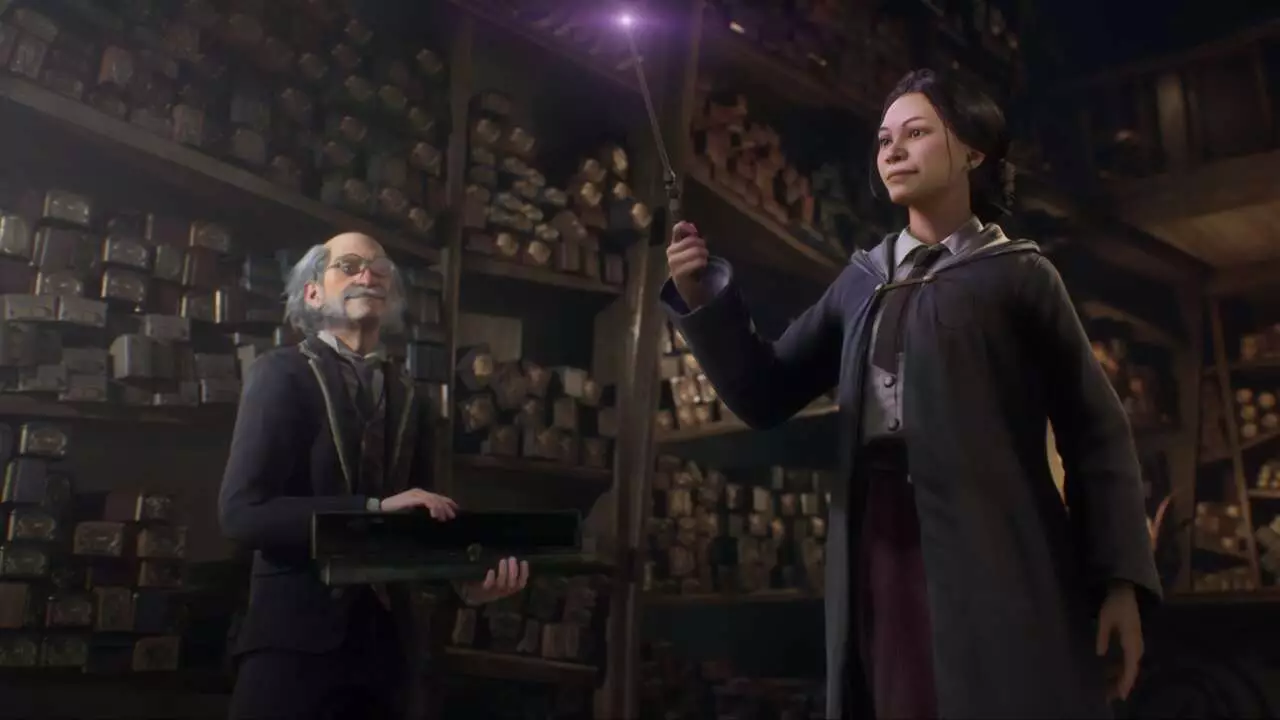In an intriguing twist for the gaming community, it has been revealed that the anticipated expansions and a Definitive Edition for 2023’s blockbuster game, Hogwarts Legacy, have been axed. This turn of events stems from Warner Bros. Discovery’s ongoing restructuring efforts within its video game sector. Initially rumored projects, including a substantial expansion that aimed to add new narratives to the beloved Harry Potter universe, have now been shelved. Surprisingly, these developments arrived without any official announcements, catching many fans and industry insiders off guard.
Financial Realities Behind Creative Decisions
A report from Bloomberg’s Jason Schreier highlights a significant concern within Warner Bros.: the proposed content for the Hogwarts Legacy expansion was perceived as insufficient to merit its expected price point. This situation underscores a critical lesson in the gaming industry—balancing creative ambitions with financial viability is paramount. As player expectations reach new heights, developers face tremendous pressure to deliver value that justifies expenditures, a balance that appears to have been eluded in this scenario.
While some may speculate on the creative limitations of the original developer, Avalanche Software, this reasoning reflects a broader trend in the entertainment industry where the profitability of expansions and sequels can dictate the fate of creative projects. The decision to cancel illustrates a keen awareness of market dynamics, albeit at the cost of disappointing a segment of the game’s passionate fanbase.
Future Directions Amidst Restructuring
Warner Bros. Discovery’s sweeping changes also come with a strategic focus on consolidating their gaming efforts around four high-profile intellectual properties: Harry Potter, Game of Thrones, Mortal Kombat, and DC. By narrowing their scope, the gaming titan anticipates channeling creative and financial resources more efficiently, minimizing risks associated with larger, less coherent project portfolios. The future strategy to emphasize these established franchises may signal an understanding that familiarity breeds consumer trust—an essential element in gaming that directly affects sales.
Controversy and Popularity: The Duality of Hogwarts Legacy
Despite the controversies surrounding J.K. Rowling due to her divisive opinions on transgender issues, Hogwarts Legacy has surged ahead as the best-selling game of 2023 in the United States. This phenomenon raises questions about the complexities of consumer behavior and brand loyalty in the face of ethical considerations. The success of Hogwarts Legacy speaks volumes about the enduring appeal of the Harry Potter franchise, yet it also highlights the disconnect between creator philosophy and audience enjoyment.
As Warner Bros. plans a sequel, describing it as a senior priority, the company is clearly leaning into the franchise’s proven popularity. It’s fascinating to contemplate how they will navigate the perceptions surrounding the brand, balancing creative freedom with public sentiment as they embark on this next installment.
The landscape of gaming continues to shift, filled with uncertainties as new business models and societal norms surface. For fans of Hogwarts Legacy, the silver lining remains the potential for a sequel and the hope that future releases will transcend the hurdles of corporate decision-making, delivering experiences worthy of the magical universe we all cherish.


Leave a Reply